Flying toilets cleared to land
- Dave Boniface

- Oct 7, 2022
- 1 min read

Kibera’s notorious flying toilets are still an issue for most of its residents. Bagging and chucking human waste seems less prevalent, although open sewers are still plentiful and the river at the base of the Kianda region crawls at a consistency that defies description. Building a washroom and toilet block in the middle of a global pandemic was a challenge that just could not be ignored.
Acquiring land post conflagration from mysterious sources, navigating the bewildering complexities of tribal permissions, and dealing with payment, protection rackets and threats were only a precursor of challenges to come. Porting several tonnes of building material by hand whilst constructing under the suspicious eyes of all too close neighbours, the new washrooms began to take shape. Permission to connect waste to a real sewer although obtained proved not so easy to implement as any space left unoccupied is all too soon adopted and built over. Finally Fundi* connected the electrics to power the suicide showers** and lighting; A huge water tank was spectacularly manhandled over the neighbours' shacks to ensure continuity of supply.
A local partner commented with frustration that there are still more churches than toilets in Kibera. A worrying but very real indictment of the perception of the basic needs of its residents by those from afar.
*Fundi: Local tradesmen/workmen
**suicide showers: shower heads fitted internally with high power electric mains heating

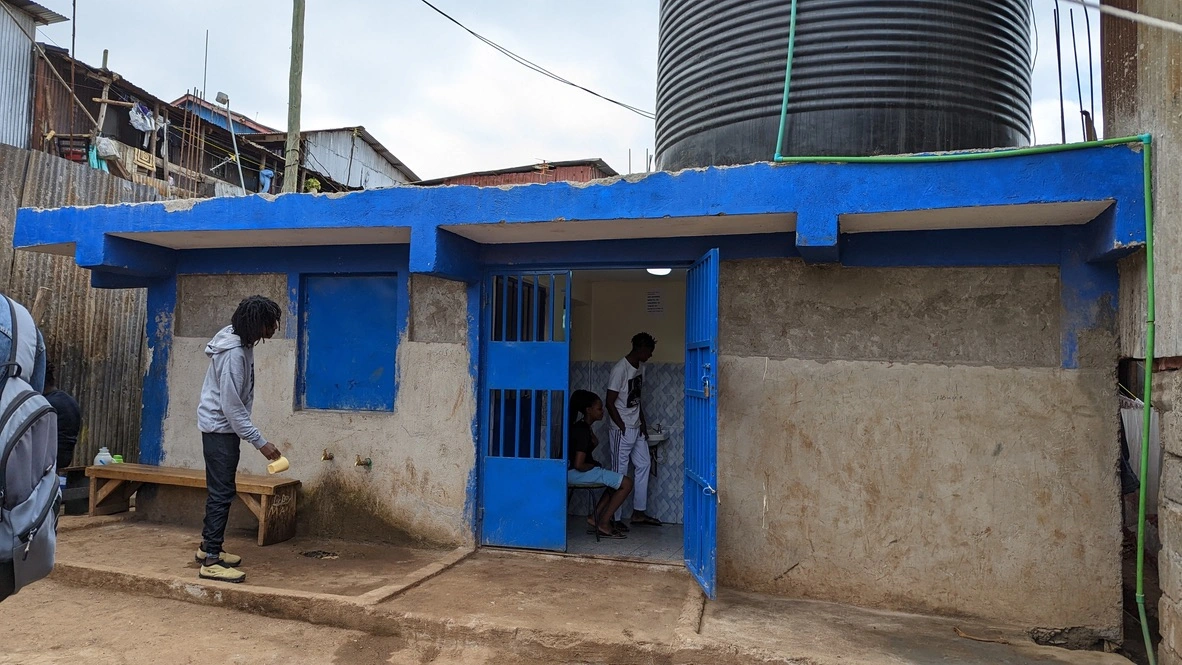
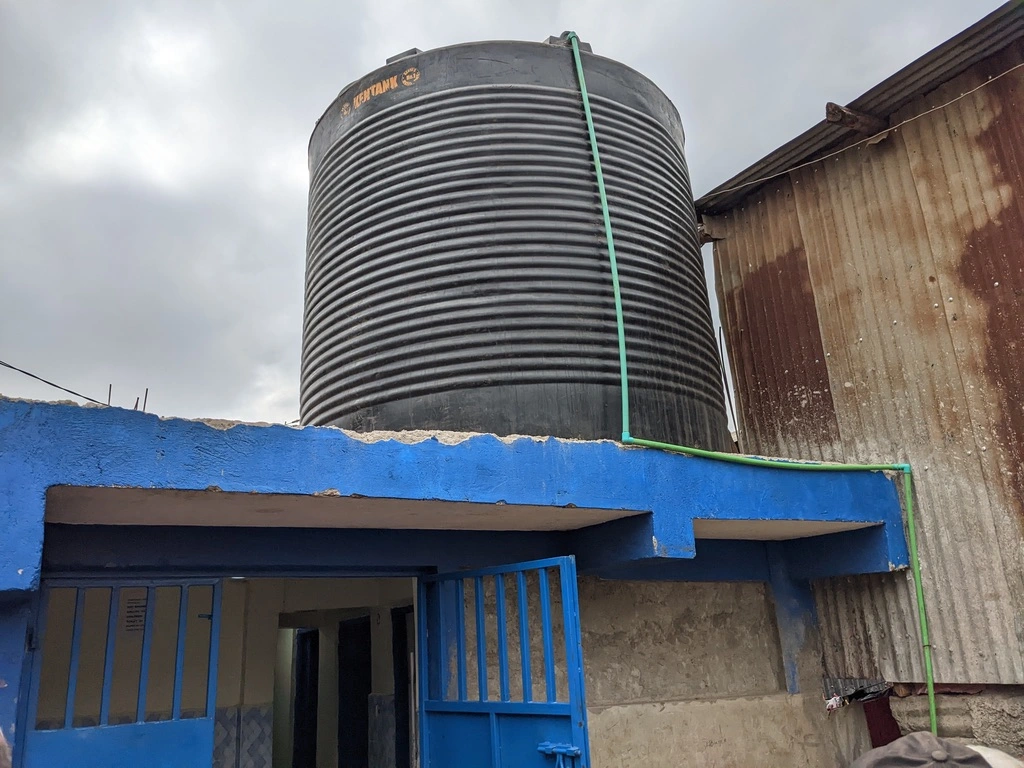
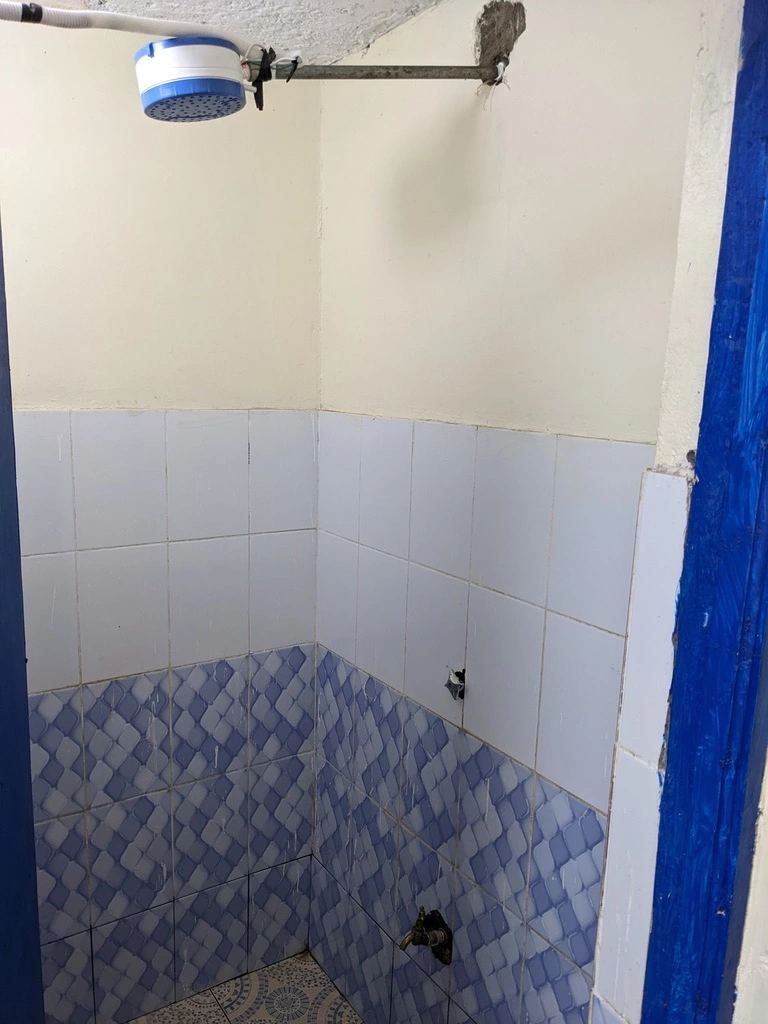
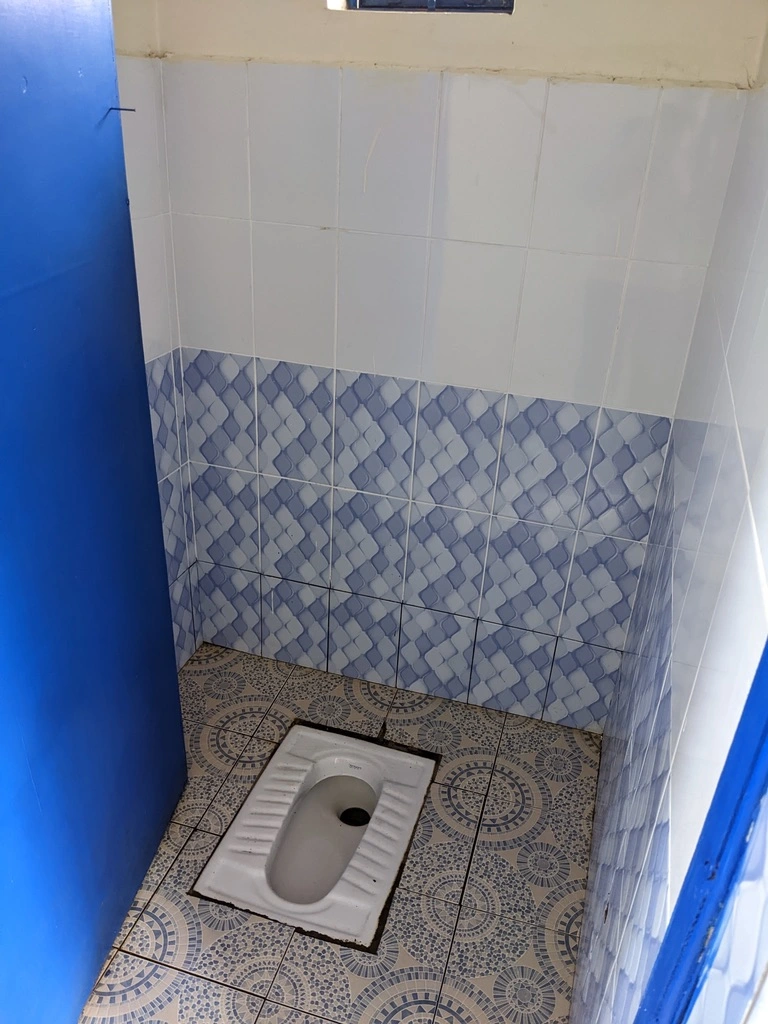
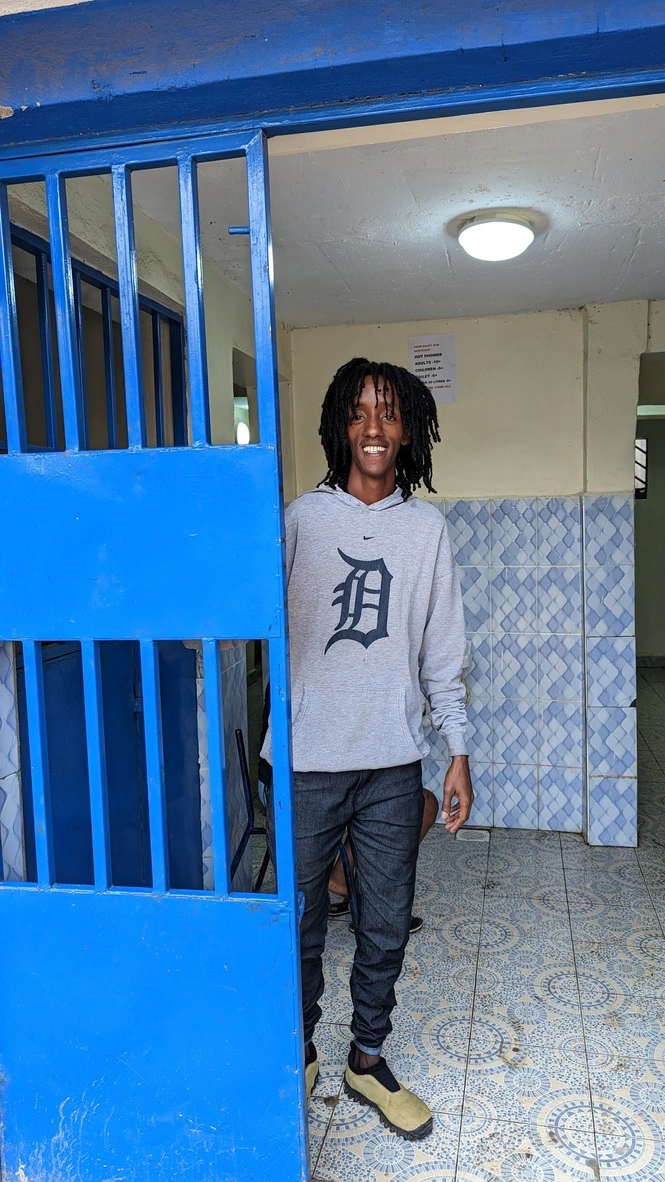



Comments